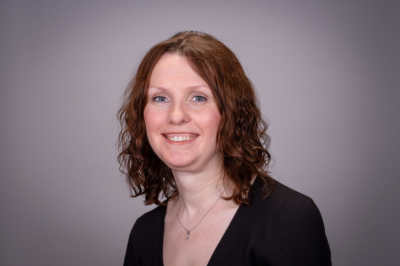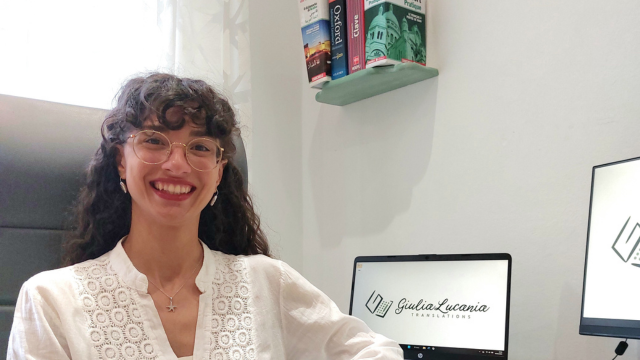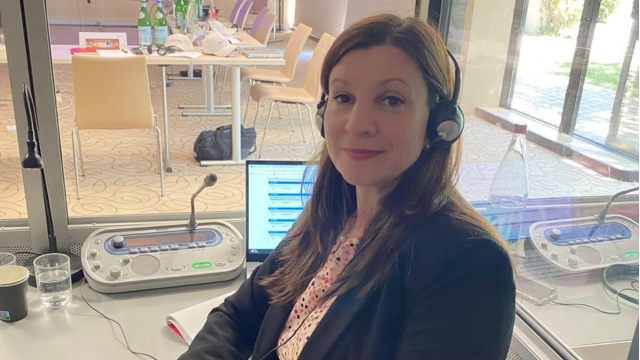-
QUALIFICATIONS
- For Linguists Worldwide
- For UK Public Services
- Preparation
- Policies & Regulation
-
MEMBERSHIP
- Join CIOL
- Membership grades
- NEW for Language Lovers
- Chartered Linguist
- Already a member?
- Professional conduct
- Business & Corporate Partners
-
ASSESSMENTS
- For Second Language Speakers
- English as a Second Language
-
EVENTS & TRAINING
- CPD, Webinars & Training
- CIOL Conference Season 2025
- Events & Networks
- CIOL Mentoring
-
NEWS & VOICES
- News & Voices
- CIOL eNews
- CIOL Awards
- The Linguist
- Jobs & Ads
-
RESOURCES
- For Translators & Interpreters
- For Universities & Students
- Standards & Norms
- CIOL & AI
- All Party Parliamentary Group
- In the UK
- UK Public Services
- Find-a-Linguist
My experiences with Certified Translations
By Sarah Cutts MCIL

Having previously worked in-house for ten years, and in my own freelance business for seven years, I have provided many certified translations from Spanish and French into English and have helped clients in various situations.
I mainly work with private individuals, who sometimes have no idea what they need in terms of certification. Obviously, we cannot advise clients on what they need, so I always recommend that they check the requirements with the authority requesting the translation, to avoid ambiguity and any further expenses later in the process. I enjoy working with clients directly as I get great satisfaction from helping them solve whatever language related problems they are experiencing at the time. Mainly I provide certified translations of birth, marriage or death certificates, but it can range from buying or selling properties, translating inheritance documents to settle an estate, resolving family disputes, or even helping to reunite old flames after many years apart!
It is interesting that some clients are specifically asked to provide the hard copy of a certified translation, so that its authenticity can easily be verified, whereas for other clients, a scanned version of the certified translation will suffice, if they intend to use it for an online application (for a university course, for example). It seems that there are no specific regulations in place regarding the format in which the certified translation should be submitted. I offer my clients both options so that they can choose which best suits their needs. Furthermore, my own certification of accuracy is usually sufficient for most purposes, but on occasion I have been asked to provide a specific wording, or a handwritten statement on each page.
I am often asked if I need the original document, but unless there is a specific need for it to be used for notarisation or other legal purposes, I can work with a copy, as long as it is clear and legible.
Sometimes clients will send me a bundle of various documents for translation, and they have the option of either being certified together (i.e. listed on the same certificate) or individually (where each document has its own certificate). The advantage of having a separate certificate for each document is that these translations can then be used on their own merit and for other purposes if necessary. The obvious downside to this is the cost involved.
If I have been sent a bundle of documents which are a mixture of my language combinations, I will provide an individual certificate for each language.
Difficulties can arise with handwritten documents which are extremely hard to read, or documents which are very faint. In these scenarios, I must advise my clients that anything that cannot be read clearly will have to be marked as “illegible”, as I am unable to certify the translation of a document that is ambiguous or unclear. This usually prompts the client to send a clearer copy or maybe even a transcribed version of the document.
On the occasions that I am asked to provide certified translations out of English into another language, I happily refer the client to a trusted colleague who can help.
Providing certified translations is a learning curve, especially when there are so many countries and authorities with different requirements. Our job, as translators, is to guide the client through the potential minefield and try to make the process as stress-free as possible!
Sarah Cutts is a Spanish and French to English translator of legal, academic and commercial documents, based in Preston. Sarah is a member of the Chartered Institute of Linguists and is a Chartered Linguist. You can find her on LinkedIn at: https://www.linkedin.com/in/sarah-cutts-trans/ or through her website at: www.sarahcuttstranslation.co.uk
Views expressed on CIOL Voices are those of the writer and may not represent those of the wider membership or CIOL.
More
The Chartered Institute of Linguists (CIOL), Incorporated by Royal Charter, Registered in England and Wales Number RC 000808 and the IoL Educational Trust (IoLET), trading as CIOL Qualifications, Company limited by Guarantee, Registered in England and Wales Number 04297497 and Registered Charity Number 1090263. CIOL is a not-for-profit organisation.








